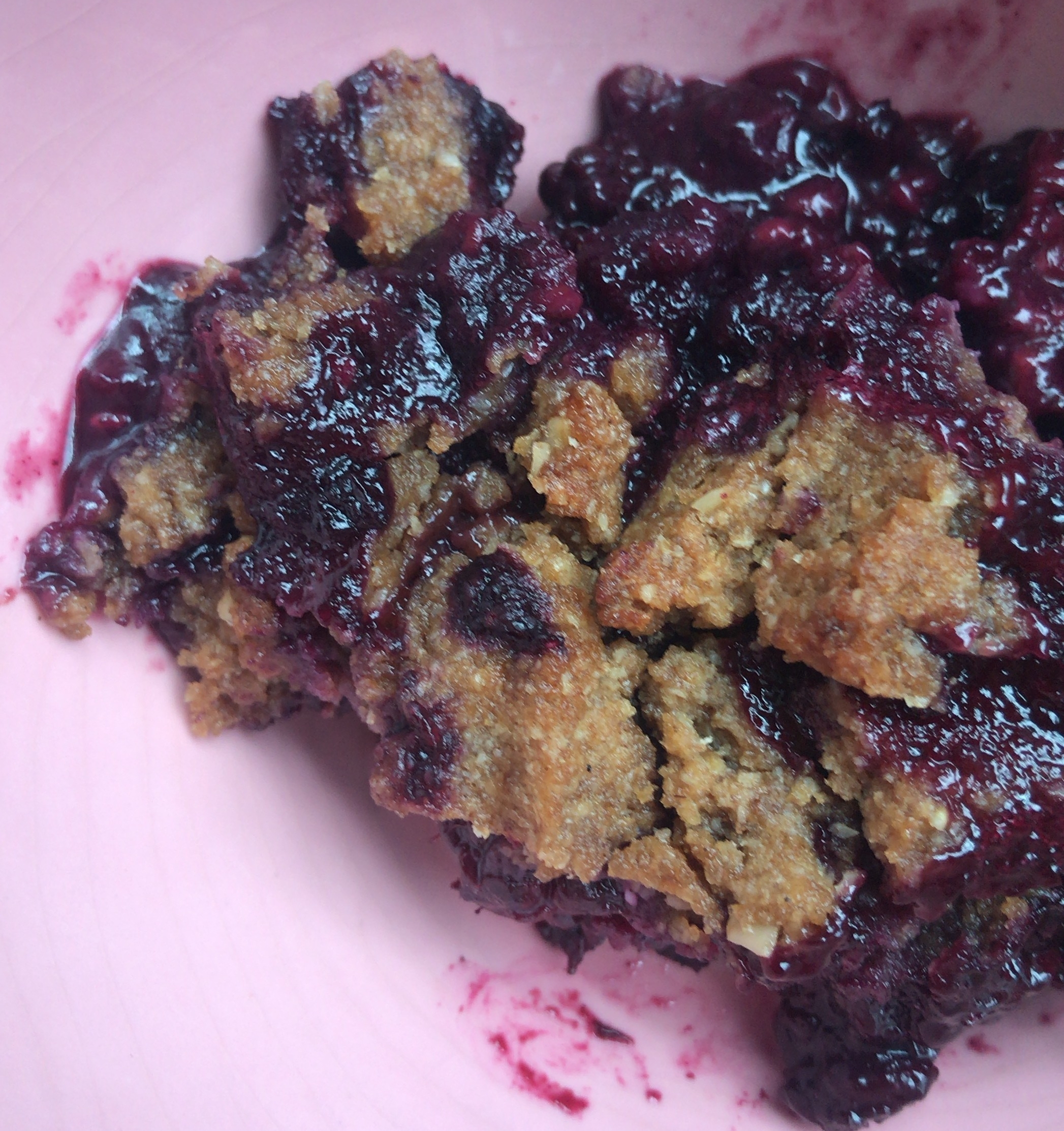Eating for Endo: An Update
As you know, I started experimenting with some dietary changes back in April. And I haven't written an update since then, and it is already the end of July!
Time flies like money in an organic grocery store.
Since then, the way I approach eating to support my body has shifted and evolved. I've learned a lot. For starters...
I started planning my grocery trips around my menstrual cycle.
Yes, you read that right. If you're new here, you should know I am fully onboard the Womancode train. For instance, I try to plan meals that incorporate shellfish or pork during my period, make smoothies that include raspberries and strawberries when I'm ovulating, snack on chickpeas in my luteal phase. I started that about a month after I started using my antiinflammatory cookbook. It actually helped me branch out and try new recipes rather than making the same ones over and over (but WOULD I ever really get tired of coconut shrimp?).
Overall, I started to feel better immediately. Less sluggish, less bloated. It didn't help my period right away, but all my research said to give it three to four months, and I *have* noticed some exciting changes...
It's not a full solution, but it's doing something.
Not long after I started focusing on antiinflammatory eating, I noticed a pretty big change in the two weeks or so before my period (roughly the ovulatory and luteal phases). I did not see any hormonal acne. ANY. My skin looked better than it's looked in ages. It fucking glowed and I didn't use a single overpriced mask.
And PMS? My PMS comes in an unpredictable combination of three flavors each month -- a desire to punch everyone, a hopeless feeling of oppressive sadness that everything is just WRONG, and/or persistent paranoia that everyone I care about hates me or is angry at me. IT'S A GREAT FEELING. But before my last two periods, I didn't even notice PMS except for one mood swing featuring anxiety the night before each period. Mood swings are never pleasant, but one a month is quite a bit more manageable than feeling like the world is ending and I can't stand myself for about 10 days a month.
And interestingly enough, when I went to my last acupuncture appointment, my acupuncturist told me my tongue looks the best it has looked in THREE YEARS (the shape and color of the tongue can tell you things about the states of your visceral organs). I don't know if that has more to do with my eating, lifestyle changes, or stress levels, but it's a good sign nonetheless, and I am sure a healthy diet can't hurt.
The biggest goal, of course, is to get myself to a place where I have painless periods. Ah, my white whale. I am not there yet -- days 2 and 3 are SUCH a bitch. But last month I was able to manage only with Advil, essential oils, salt baths, and my heating pad -- i.e., NO prescription painkillers. HOLLA.
That said, it's damn hard to be perfect.
My goal is to eat in a way that supports my endocrine system and fights inflammation on weekdays and be a little more lax on the weekends. It's just HARD to stay totally on track when you're going out to eat, and I for one LOVE to go out to eat and try new things. So I guess this is the 80-20 approach (stay on track 80% of the time, indulge the other 20%). I don't go crazy, but I also work hard not to beat myself up if I have a drink or can't stop stuffing free dinner rolls into my face.
In fact, July has been hard. The Fourth of July was in the middle of the week, which meant drinks and picnic food, I transitioned to a new job which threw me out of my eating routine, and there have been a few social engagements involving alcohol and charcuterie. But I've actually learned a lot from this. The day after consuming processed meats and cheese from said charcuterie board, my skin showed it. Drinking more than usual has wreaked havoc on my sleep and therefore my energy. And junk food definitely has taken a toll on my mood -- PMS has *not* been a piece of cake this month.
I try not to beat myself up, but sometimes it's hard (especially when hormones are wreaking havoc on my brain). It's a vicious cycle to blame yourself when you already aren't feeling well, so I try really hard not to do that, and my partner and my best friends know to talk me down when I'm not feeling at my most rational. I try to limit stress because that has a more intense negative impact on my cycle than bad food does. And I try to remember that this is all helpful information; I know I don't have allergies or intolerances to gluten, processed sugar, or dairy, but I also know my body doesn't like them as much as it likes healthy produce -- as evidenced by my skin and mood.
Substitutes remain key.
I was overwhelmed when I started changing the way I eat. A long-time devotee of meal delivery services like Blue Apron and Plated afforded me the opportunity to not think about grocery shopping or plan ahead about recipes, so making the switch and learning what was and wasn't supportive of my body was a little bit of a process.
But after a few weeks of experimenting and restocking my pantry with healthier substitutes, I don't feel like I am on a "diet" per se. I don't feel like I've cut anything major out, and I don't feel restricted. I personally am skeptical of any diet that eliminates an entire macronutrient (whether it is carbs, fat, or protein), and eating in an antiinflammatory, endocrine-supportive way doesn't do that.
Mixed berry cobbler for July 4? Don't mind if I do.
My favorites are:
- Coconut aminos is slightly sweeter than soy sauce, but the difference is hardly noticeable when you're dipping your sushi in it.
- Who needs canola and vegetable oil when olive oil is already amazing and avocado and sesame oil taste equally great?
- Oat and almond flour are gluten-free alternatives to regular flour, which is also more or less devoid of anything of nutritional substance.
- Coconut sugar has a lower glycemic index than processed sugar, and I prefer the richer smell and taste (it reminds me of brown sugar). Raw honey and pure maple syrup are also preferable unprocessed sweeteners.
- I think "zoodles" are trash, but I can't tell the difference between pasta made from chickpeas and regular pasta. And chickpeas are loaded with protein and antiinflammatory factors.
I won't lie to you though -- almond butter and cashew butter got nothing on peanut butter.
This microbiome shit is for real.
If you haven't heard more and more research coming out about the importance of your gut health, you will soon. I am convinced that sometime in the future, the microbiome (consisting of all the "flora and "fauna" that live in your gut) is going to be the answer to a ton of our problems and people will look back on this period of time like "Wow, I can't believe those people thought antibiotics were a good choice," the way we look back and think "Wow, I can't believe those people thought leeches were a good choice."
I am not a microbiome expert and I want to learn more, but here is what I do know -- a healthy microbiome is connected to damn near everything. It supports immunity and clear, healthy skin, and if you've ever gotten a yeast infection from antibiotics killing all the "good" bacteria in your system, then you know it means keeping certain systems in your body in balance. What I learned most recently from Womancode though is that the microbiome also supports your mood. Serotinin doesn't just exist in the brain; 50 percent is produced in the intestine. WHAAAAAAT?!
There are several ways to support your microbiome. The first is taking probiotics, but something that has been sitting on a grocery store shelf for who knows how long can only take you so far. I also support mine by trying to vary my diet as much as possible; one easy way to do this is to change up a smoothie every day with different fruits and vegetables.
I also started incorporating something fermented into my diet at least once a day. Fermented foods have live active cultures, reintroducing thousands of good bacteria strains back into your stomach. I love Baltimore's Wild Kombucha (that watermelon hops flavor tho) and Hex Ferments. Both have several awesome kombucha flavors, and Hex also makes a great chickpea-based, soy-free kimchi. This last weekend at the farmers' market, I also sampled Hex's "glow kraut," a turmeric sauerkraut mix I ended up buying. Noms.
Eating this way is self-care, even though it doesn't involve a #kbeauty sheet mask.
Chickpea pasta FTW!
Inconvenient fact: Not all self-care is fun or exciting. Sometimes self-care means deep-cleaning your apartment so you can bask on the sofa in a clean space for like an hour before bed. Sometimes self-care means making your bed so that it's nice and tidy when you're ready for sleep. Self-care isn't always bubble baths, manis, and face masks. When you have chronic illness and a limited amount of energy, sometimes self-care is managing to just take a shower.
I never used to like cooking or baking, and I always thought I was *bad* at it. I learned a lot about cooking with the previously mentioned meal delivery services though, and I've come to enjoy the process of planning what to shop for each week and then preparing it for myself. As I ate that cilantro jalapeno hummus, I imagined all the good cleansing properties cilantro has for my liver, helping it eliminate the excess estrogen that causes me pain. As I snacked on that entirely vegan, antiinflammatory cobbler, I thought about the antioxidant, antiinflammatory effects of the berries. As I ate my chickpea pasta, I thought about how it would combat any inflammation in my body and help power my muscles.
When you have endo and chronic pain, a lot of it feels out of your control, but being mindful about what I put in my body gives me a sense of control and pride for treating it as something to be cherished and supported (rather than as the broken machine I usually consider it to be).
Bonus -- it was all fucking delicious.
xo,
S








